The new normal as Lockdown relaxes amidst restrictions

Since the outbreak of the Covid-19 pandemic, the world has observed a devastating state of adversity. With the dramatic rise of fresh COVID cases each day and the extended lockdown in place limiting functionalities, panic has engulfed the public after having endured all battle tactics to curb the spread of the Novel Coronavirus.
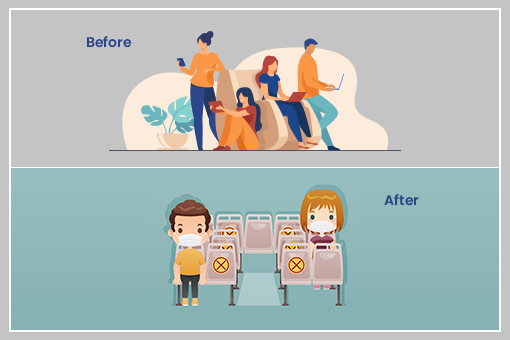
Although the virus seems to spread rapidly at initial stages, effective measures initiated by the administrations and active support of the citizens have facilitated many regions to contain the spread of COVID-19 successfully.
Life After Restrictions and Post-Lockdown
It is extremely important to be cautious and take even more precautions than before while stepping out. Now is the time to take up the prime responsibility of keeping ourselves safe and also ensure that others follow suit in terms of staying safe and alert. In this regard, it is crucial to passing on precise information and precautionary measures as per advisories issued by Ministry of Health & Family Welfare, among our citizens with the intent of battling the virus, while going about our day-to-day affairs in a relatively relaxed phase of lockdown.
Although the Government of India is yet to release another set of guidelines around the safety measures and mandatory protocols for all to curb the spread of COVID-19 in this new phase of lockdown, we want our citizens to follow the crucial safety measures at all times as they go back to their ‘usual lives’.
- Maintain Social Distancing
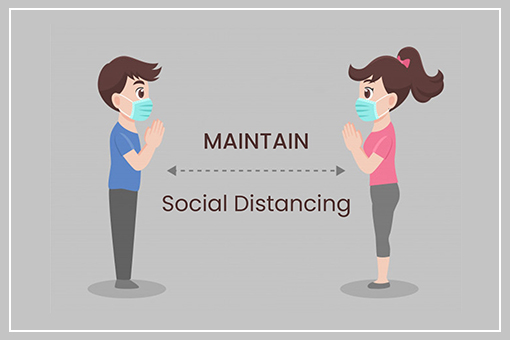
Always ensure a minimum of 1 meter (3 feet) distance between yourself and others; be it your relatives, friends or co-workers. If you are in close proximity with others, it is possible to breathe in the droplets of an infected person when they cough, sneeze or speak. Social distancing is a safe practice that everyone should continue to follow even after the restrictions are lifted.
2. Avoid Mass Gathering
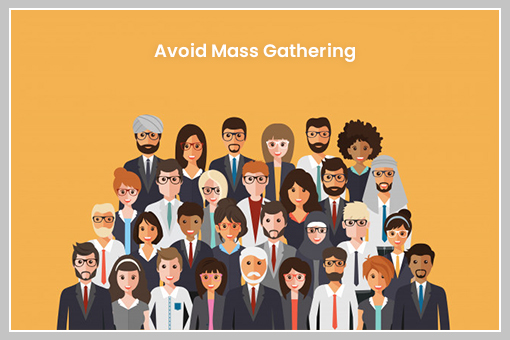
Never venture into crowded places or a place of mass gathering, where it is difficult to maintain a safe physical distance from others and you become more prone to get infected from a prior infected person unknown to you.
Mass gatherings are not only limited to clubs, weddings or parties. We must also avoid gatherings in places such as local festivals, markets, holy shrines and banks too.
3. Wear a Mask
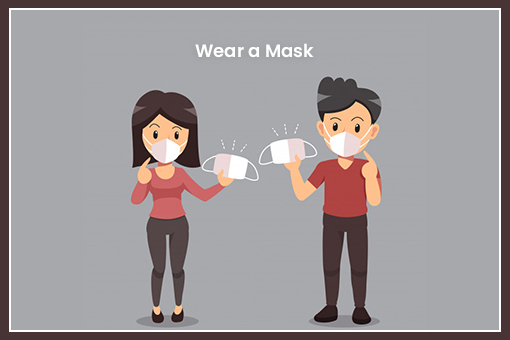
Wearing a mask has been made mandatory due to its utmost importance in avoiding the virus.
You should cover your mouth and nose with a mask and make sure there are no gaps between your face and the mask. Replace the mask with a new one as soon as it becomes damp and never re-use a single-use mask more than once.
4. Follow proper Hygiene
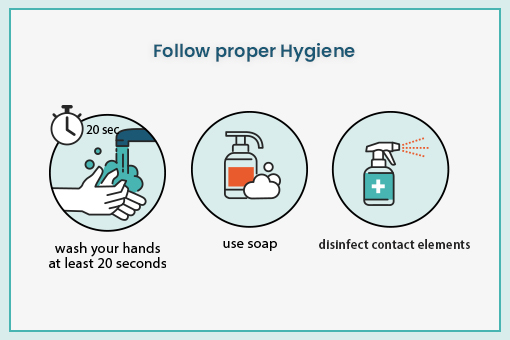
Make sure to clean commonly touched/used surfaces thoroughly including doorknobs, desks etc. Clean your hands with an alcohol-based sanitizer or wash them with soap and water thoroughly and regularly to reduce the risk of virus transmission.
5. Eat Healthy and Exercise
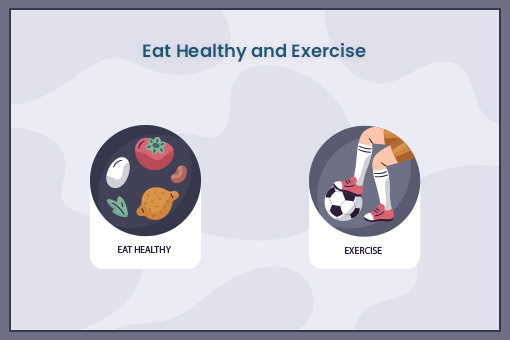
Exercising regularly and maintaining a healthy diet can boost your immunity which can help you fight back against COVID-19 as well as other ailments. Make sure to cook your food properly and avoid takeout items as much as possible.
6. Commuting
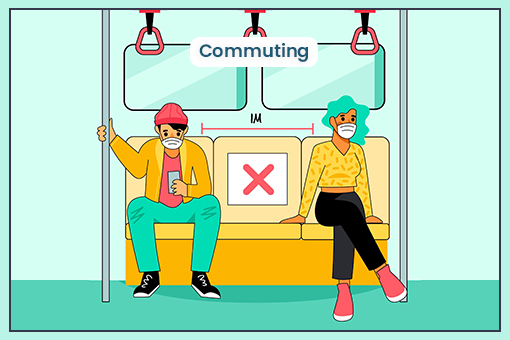
While commuting in public transits, maintain the basic safety norms such as covering your face, practising social distancing, carrying a sanitizer etc.
7. Stay Home
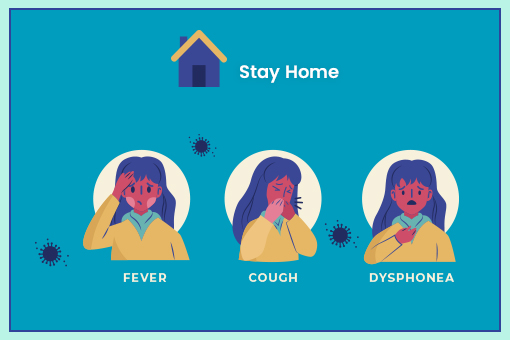
Stay home and self-isolate even when you experience minor symptoms such as cough, headache, mild fever; until you recover. In such circumstances, have someone bring you supplies. However, if you need to leave your house, wear a mask to avoid infecting others. Avoiding contact with others will protect them from the risk of transmitting the virus infection.
8. When in Need, Seek Help
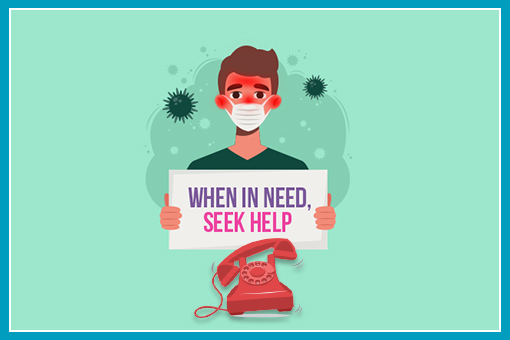
If you have a fever, cough or difficulty in breathing, seek medical attention. But it is advisable to speak on the phone and seek advice from your local healthcare authority first and then follow up with a visit if it is absolutely necessary. Why? According to WHO (World Health Organization), National and local authorities will have the most up to date information on the situation in your area. Calling in advance will allow your health care provider to quickly direct you to the right health facility. This will also protect you and help prevent the spread of viruses and other infections.
9. Be Mindful when outside
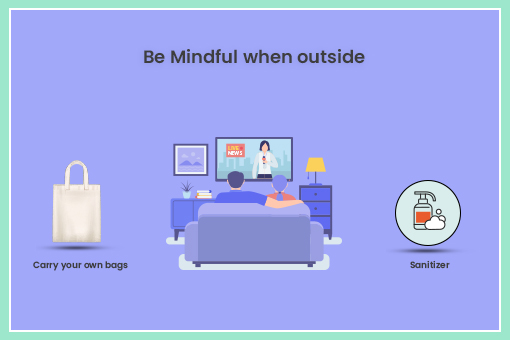
Remember to carry your own bags and personal sanitizer when you go out to shop. A daily update on the COVID status would be beneficial for you in understanding the current situation in and around your area. Also, storing the details of supports, such as medics and authorities in case of reaching out might be handy in an emergency.
10. Social Responsibility
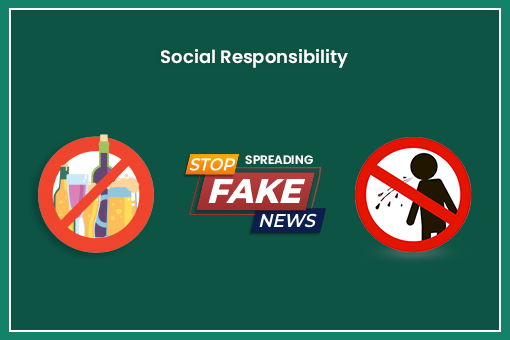
Avoid spitting, smoking or going out for a drink. One should also not create panic by spreading fake rumours and misinformation in social media without fact-checking. You must not troll or blame an infected person or a particular community for the spread of the Virus.
Amidst this adversity, we must show compassion and help to raise awareness amongst each other to ensure that everyone understands and obey the norms even after the relaxations.
In a nutshell, the Coronavirus pandemic has compelled the whole world to adapt to drastic changes. Even after the partial lockdown or after the lockdown gets lifted, establishments such as offices, educational institutions, health institutions etc. will have to put up with a large number of precautionary measures for the people to contain the COVID-19 spread. And with that in mind, we must first be obliged to take precautions on our own for the benefit of our health and safety. It is our responsibility to help fight the pandemic by adhering to the safety precautions provided by our health officials.



Total Comments - 0